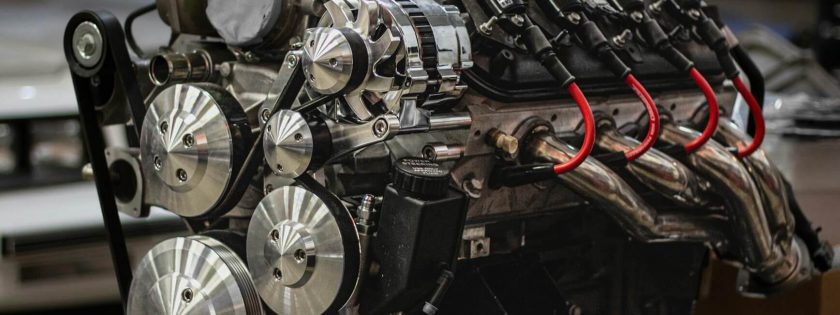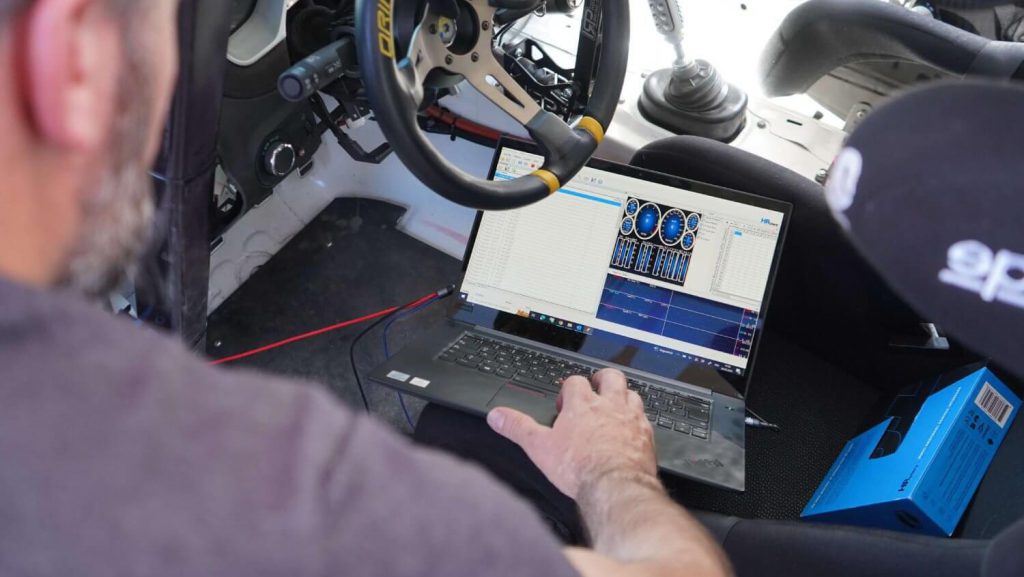A Beginner’s Guide to Engine Tuning
Published on: May 23, 2024Categories: Education

Welcome to HP Tuners! Today, we’re breaking down the basics of engine tuning, explaining key concepts like horsepower, torque, and how tuning can improve your driving experience. Let’s get started!
Understanding Horsepower & Torque
Horsepower (HP)
Horsepower is a measure of your engine’s ability to do work over time. Originating from the steam engine era, where one horsepower was roughly the power of one horse, today it’s a crucial figure in determining how quickly a vehicle can perform tasks like accelerating onto a highway or overtaking another car. Essentially, the higher the horsepower, the more power at your disposal to move your vehicle. It can be measured in horsepower (HP), brake-horsepower (BHP) or metric horsepower (PS) depending on your region.
Horsepower (HP), Brake Horsepower (BHP), and Metric Horsepower (PS) Explained
Horsepower (HP): Horsepower is a unit of measurement for power, which quantifies the rate at which work is done. In the context of engines, it indicates how much power an engine can produce. Horsepower is a broad measure that doesn’t account for losses due to mechanical inefficiencies or friction within the engine. It provides a general sense of an engine’s capability under ideal conditions.
Brake Horsepower (BHP): Brake horsepower is a more precise measure of an engine’s power output, specifically at the engine’s output shaft. Unlike general horsepower, BHP accounts for losses due to friction and other mechanical factors within the engine and drivetrain. It measures the usable power that actually reaches the wheels, making it a more realistic indicator of a vehicle’s performance. BHP is measured using a dynamometer that applies a load to the engine, simulating real-world driving conditions.
Metric Horsepower (PS): Metric horsepower, known as Pferdestärke (PS) in German, is another unit of power measurement. One metric horsepower is equivalent to approximately 735.5 watts, which is slightly less than one imperial horsepower (746 watts). This minor difference means that 1 HP is roughly equal to 0.986 PS. Metric horsepower is commonly used in Europe and aligns with the metric system of measurement.
Key Differences:
- HP vs. BHP: Horsepower (HP) measures the total power output without considering losses, while brake horsepower (BHP) measures the power output after accounting for mechanical losses, providing a more accurate reflection of the power available for vehicle performance.
- HP vs. PS: While both are measures of power, imperial horsepower (HP) is slightly higher than metric horsepower (PS), with 1 HP being approximately equal to 0.986 PS. This difference, although small, can become significant in high-power applications.
Torque
While horsepower measures power, torque measures force—it’s the twisting force your engine generates to turn the wheels. Imagine torque as the initial grunt you need to get your vehicle moving. It’s crucial for determining how quickly a car can start moving from a stop and how well it can climb hills or tow heavy loads. Torque is typically felt as the immediate response of the car when you press the accelerator. It can be measured in newton meters (Nm) or foot pounds (ft-lb) depending on your region.


Performance Comparison: High Horsepower vs. High Torque
- High Horsepower, Low Torque Vehicle: This vehicle excels in high-speed scenarios, perfect for racing or highway driving where it can utilize its high-speed power to perform efficiently.
- High Torque, Moderate Horsepower Vehicle: Ideal for towing and off-road use, this setup offers great initial power to overcome static inertia, making it better for tasks requiring strong and immediate pull from a standstill.
Understanding the balance between horsepower and torque helps you appreciate why certain cars feel faster or stronger under different conditions. This is crucial when tuning, as modifications can enhance these aspects to suit specific driving needs or styles.
Basics of Engine Performance
Air & Fuel Mixture
At the heart of your engine’s performance is the air-to-fuel ratio. This mixture is crucial because it determines how efficiently your engine burns fuel. The ideal ratio ensures that all the fuel is consumed in the combustion process, maximizing power and reducing waste. If the mixture is too rich (too much fuel) or too lean (too much air), it can lead to engine problems like knocking or poor efficiency.
Ignition Timing
The spark plug must fire at the precise moment to ignite the fuel-air mixture for optimal combustion. Advanced timing can lead to more power, but it must be carefully managed to avoid pre-ignition or engine knocking, which can be damaging. On the other hand, retarded ignition timing can cause sluggish engine response and reduced power.
Exhaust Flow
After the air and fuel have combusted, the exhaust gases need to exit the engine efficiently. An optimized exhaust system reduces back pressure, allowing the engine to breathe easier and rev more freely, which enhances performance. Modifications like larger diameter exhaust pipes or performance exhaust systems can help achieve this by reducing the resistance to the outgoing gases.
These elements form the foundation of how your engine operates. By adjusting each aspect through modifications and tuning, we can significantly enhance your vehicle’s performance. This isn’t just about making your car faster—it’s about making it run more efficiently and responsively.

Introduction to Tuning
Reflashing the ECU
One of the most powerful tools in tuning is the ability to reflash, or rewrite, the software on the engine control unit (ECU). The ECU is essentially the brain of your car, controlling everything from the air-fuel ratio to the ignition timing. Reflashing the ECU allows us to make adjustments that improve performance, fuel efficiency, and even responsiveness.
VCM Editor
VCM Editor provides a user-friendly interface to make these adjustments. We can customize settings based on specific goals, whether that’s better fuel economy for a daily driver or more horsepower for a track car. Each adjustment is made with precision, ensuring the vehicle operates as commanded.
VCM Scanner
VCM Scanner is HP Tuners’ solution to diagnostics and data logging. A crucial part of tuning, it records how the vehicle performs under various conditions. This data is invaluable because it allows you to infer what changes to make and how those changes impact the vehicle’s performance. We can see everything from how quickly the engine responds to adjustments in the air-fuel ratio to how changes in the exhaust flow improve power output.
Professional Tuning
While some enthusiasts prefer DIY tuning, professional tuning comes with the benefit of experience and specialized equipment. This ensures that adjustments not only boost performance but also maintain the vehicle’s reliability and compliance with emissions standards. You can speak with our helpful technical support to find a certified dealer near you.
Conclusion
Tuning isn’t just about upping the horsepower or getting a few extra miles per gallon. It’s about optimizing your vehicle to meet your specific needs and driving habits. It can transform a standard vehicle into something truly special, tailor-made for its owner.
By harnessing the power of modern tuning technology, you can uncover the potential of your vehicle, making it more powerful, efficient, and enjoyable to drive. Whether you’re looking to optimize your daily commuter or fine-tune a race car, tuning is an essential tool in your automotive toolkit.
Throughout your tuning journey with HP Tuners, utilize our Help Center, Forum, Educational YouTube videos, and technical support team for any help you may need.

